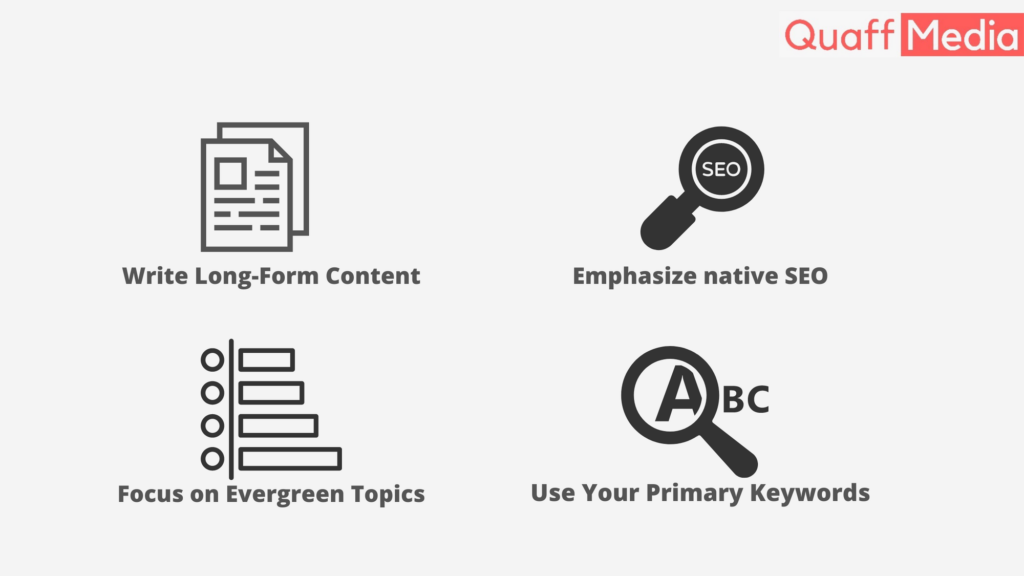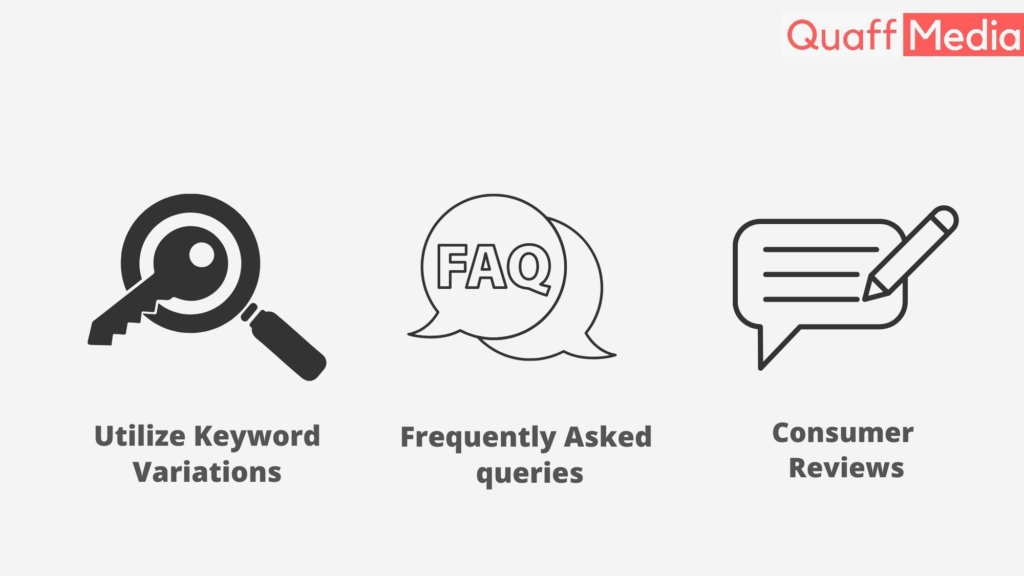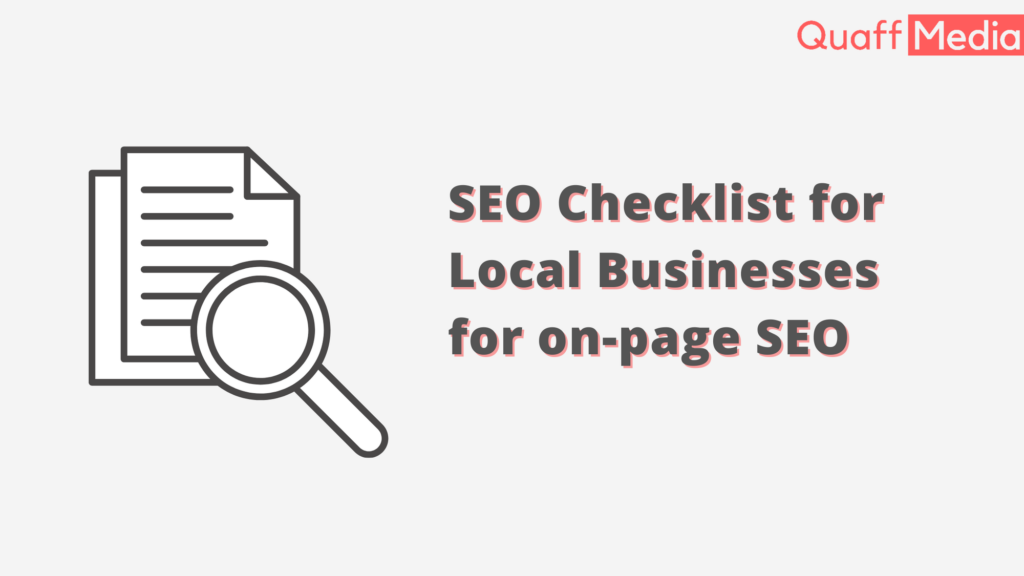Index
ORGANIC SEO
The digital promoting landscape is usually evolving. As an area business owner, you need to keep earlier than the curve to stay competitive within the marketplace as Google changes its algorithms. Adapt your SEO campaigns to rank high in program results and gain additional traffic and sales.
As you recognize, obtaining your product or service before a web audience is essential to your success.
DIY Approach to On-Page SEO
Many native businesses work with Associate in Nursing SEO agencies to develop, implement and monitor their online promoting campaigns. Generally, small-to-medium size businesses do not have the experience, time, or workers for this endeavor. Operating with a promoting agency offers you access to all the resources necessary to handle your promoting desires and concentrate on running your company.
On-page SEO has several parts. These include:
- SERP analysis
- Keywords
- Modifiers
- Content
- Commonly asked queries
- Shopper Reviews
- Images
- Video
- Title Tags
- Internal Links
- URLs
- Meta Descriptions
- Headings
- Structured knowledge
- Mobile-First categorization
A Closer cross-check On-Page SEO
Higher program rankings mean additional traffic to your website. The key to a roaring digital promoting campaign for native businesses begins with on-page SEO.
The optimization method not solely includes what you see, like content, images, and videos however conjointly the unseen components of your page. These embrace such things as hypertext markup language code and meta tags.
A well-optimized page is the foundation of an efficient program strategy. Keep in mind that overhauling your on-page SEO could be an elaborate method.

SERP analysis
Begin by researching program results pages (SERP). Kind within the keyword, you would like to rank. Review the highest three results and concentrate on the titles, snippets, and URLs. Conducting analysis shows you what Google considers the relevant, valuable sites associated with that specific keyword.
Examine these results closely to come up with ideas. Explore ways to surpass your competitors to craft your own distinctive, relevant content and get a far better likelihood of ranking for that keyword.
SERP analysis is a crucial initiative once it involves on-page SEO. Google algorithms amendment perpetually. What Google liked a couple of months past might not be what it likes currently. Conduct a progress SERP analysis to recognize the correct SEO optimization steps required while not holdup, money, and resources.
Keywords & Keyword Themes
The upgrades that Google makes concentrate on delivering the most effective attainable user expertise. It’s like Google is entering into the minds of individuals conducting searches. In different words, it’s not enough to grasp what phrases folks are writing into the search. It’s conjointly necessary to grasp why they’re exploitation-bound terms. Knowing the “why” helps Google realize and deliver the foremost relevant results that match the user’s intent, and not simply a keyword.
Keywords and keyword analysis are still a central part of any SEO strategy. As a result, you need to have a transparent profile of your target market before you choose the keywords and keyword themes you would like to focus on.
Gather the maximum amount of elaborate demographic data as you’ll.
Once you determine your primary target shopper, take things a step more. Divide your audience into subgroups as a result of your audience being various. Taking this further step helps you zero in on the correct keyword phrases in conjunction with characteristic your primary keyword.
When it involves segmenting your audience, there are 2 broad teams to pay shut attention to. These are data seekers and patrons. These 2 teams have completely different user intents. As a result, they use distinct keywords once conducting search queries. to grasp their keyword usage, you need to familiarise yourself with the subsequent four forms of user intent:
- Informational
Users who are seeking data.
- Transactional
Users who are seeking to create a buying deal.
- Comparison
Users scrutinize products and services.
- Guidance
Users searching for a particular company or company page.
An informational user has a retardant they need to resolve to perform search queries seeking content that helps resolve their issue. Informational searches come back results that give users a listing of internet sites providing academic content that addresses their specific issue.

What will this mean for you as an area business owner?
You consider these factors once choosing your keywords and categorizing them consequently to optimize the means you structure your pages for higher SEO.
Progressively, additional users are conducting voice searches. Typically these search queries involve asking specific queries. Google responds with results that give users the most effective answers to their queries. Take into account inserting FAQs or a Q & a part on your pages. We tend to explore this optimization strategy a small amount later within the listing.
The bottom line here is that solid keyword analysis begins with knowing your audience. Like Google, faucet into the intent of your customers. Certify you distinguish informational and transactional users above all. Doing, therefore, helps you target the right keywords and permits you to induce the foremost out of your on-page SEO.
Keyword Modifiers
Modifiers are words that accompany your targeted keyword.
Often users embrace modifiers after they perform voice searches. Adding modifiers to your keywords faucet into ancient and voice-activated search to use along with your keywords, Google offers you some solid intel right at your fingertips.
Content
Despite the number of changes Google has created to its algorithms, one factor remains the same: Content continues to be king. The knowledge on your page is the heart and soul of your business website. It significantly impacts your bottom line once it involves online promotion.
Several best practices will amp up your on-page SEO and increase the probabilities of your page ranking high within the search.
Write Long-Form Content
Writing extended content helps establish you as an inspiration leader in your business. It will increase backlinks to your pages, which bolsters your search rankings.
Focus on Evergreen Topics
Evergreen content never goes out of fashion. Once you concentrate on topics that have endurance, the items you write typically surmount stylish or news-related content over the end of the day. Samples of evergreen material embrace tutorials, how-to, guides, resources, tools, lists, and business definitions.
Emphasize native SEO
Even though your native business encompasses a world platform online, don’t forget to charm customers and prospects in your yard. To do this, merely use hyperlocal references and keywords. Also, use consumer testimonials on your location pages.
Use Your Primary Keywords
Incorporate your primary keywords throughout your copy. If attainable, use it within the initial sentence. Specializing in one primary keyword per page helps Google determine your page’s topic.
Utilize Keyword Variations
Google’s podiform bird rule identifies exploitation phrases associated with primary keywords like Latent linguistics categorization (LSI) keywords.
Your page could sink or swim and support its content.
Frequently Asked queries
Sites with the most effective answers build it to the highest of the SERP understood as position zero.
Do not ignore FAQs. Together with this section on your page could be a sensible customary SEO follow. Certify your answers are clear and keep the knowledge updated.
Consumer Reviews
Use a review generation platform like Grade.Us and BirdEye, that solicits reviews for you. List your business on native or industry-specific review sites in addition to high review platforms, like Angie’s List, Yelp, Google My Business, and Facebook.
Positive reviews position your native business as a trusty supply whereas causation your SEO into overdrive. Shopper feedback is that the reason social proof will translate into additional revenue.
Images
Optimize pictures on your page to spice up your ranking. Specialize in raising the file name, description, and elevation tags. Embrace your target keyword within the file name, describe what is within the icon and add your target keyword here likewise.
Video
People love visual content, particularly videos. Inserting a video on your page keeps guests on your website longer and reduces bounce rates, which are 2 of Google’s ranking factors.
As an area business, your videos should get indexed by Google. You’ll be able to attractiveness to go looking engines and real folks by following these tips:
- Write short, compelling titles that embrace your target keyword.
- Craft a multi-paragraph description explaining what the video is concerning. check that you embrace the first and secondary keywords.
- produce a relevant, obvious catching fingernail that matches the subject. Have a demo video? Show your product.
- check that the video and page content relates to a constant topic.
- Use subtitles. In several cases, viewers watch videos while not sound.
Many marketers around the globe use video due to its widespread popularity among viewers and healthy ROI.
Title Tags
Google bots scroll websites to decipher the character of your content. Title tags are displayed in search results to follow best practices.
Place your primary keyword at the start followed by a secondary keyword. Google solely displays fifty to sixty characters thus you wish to remain inside those parameters. Simply check that the title tag is click-worthy and matches the content of your page.
Internal Links
The key is to link content throughout your websites like classes, subcategories, and posts. Internal linking helps with the following:
- Crawlability
- Indexability
- website Authority
Stay on prime of your links. Properly maintaining your internal links is an Associate in Nursing SEO necessity.
URLs
Give Google what it desires. You will need to use that phrase as a digital promoting mantra for you and your promoting team. Repeat it many times every day if required. A good SEO strategy takes Google’s preferences under consideration. Thereupon the same, one among the items Google (and users) like is brief, clean URLs. Generally, pages with shorter URLs perform higher within the rankings.
It may not look like an enormous deal, but it is. Short URLs are a tiny low, however vital ranking issue. It’s price taking the time to tweak your URLs to assist you to keep in Google’s sensible graces – and previous your competition.
A lean uniform resource locator is 3 to 5 words long and contains your primary keyword.
Meta Descriptions
Your meta description should answer that question. This snipping of data usually seems below the title once the computer program results show up. In some cases, Google rewrites the snippets by exploiting the primary few sentences from your page’s content. Regardless, it’s still necessary to jot down a good meta description that completely summarizes what your page is concerning. Here are a couple of key factors to contemplate once putting this on ink summary:
- Keep it cryptic
- build it clear
- offer correct details
- embrace a decision to action
As expressed earlier, Google keeps refining its computer program parameters. Having an Associate in Nursing optimized meta description ends up in increased SEO and improved click-through rates.
Headings
User expertise could be an issue that influences the success of your business website and be a distinction between losing a possible client and gaining a loyal consumer.
The best sites offer readers easy-to-digest text. Your page layout could be a key to considering your business’s online success. To boost readability (and SEO), use Headings to your advantage.
Optimize heading tags and your target keyword within the heading titles. Incorporate your keyword in 3 or four subheadings, betting on the length of your content.
Structured knowledge
Structured knowledge is referred to as schema markup. Reportedly, Google uses this as a part of its algorithmic program, thus its price taking into thought. Primarily, structured knowledge is microdata that enhances the means pages are displayed and helps search engines perceive your content, which provides users with higher search results.
Several CMS’s have an intrinsic structured knowledge feature that will do the markup for you.

